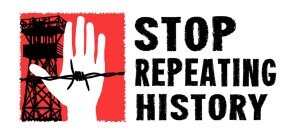Screening Event Planning
A check list of what it takes to screen a film.
REMEMBER! Screenings generally take about 3-4 months to plan, organize, and advertise! Give yourself enough time to get a good team together and organizations to help fund and collaborate with.
Step 1. Planning.
Recruit event planning committee members
Decide on a concept.
Give yourself enough lead time.
Decide on expected number of attendees.
The Stop Repeating History team may receive requests from the same metropolitan area as you! We’ll let you know if another organizer wants to plan an event in your area to collaborate with.
Find an appropriate venue (and make sure it’s available to book)!
Divide responsibilities of your event planning committee:
Operations
Panel Moderator
Communications/Marketing
Administration (if going for CLE credit)
Step 2. Organizing.
Figuring out the nitty-gritty of the planning process
Each role of the event planning committee will have different tasks.
Operations
Budget and sponsorships.
Movie rights (Stop Repeating History will help you secure one of our films).
Event scheduling
Speakers
Venue
Parking
Food and Beverage
Panel Moderator
Panel agenda.
Confirm panelist availability.
Depending on the size of the audience and availability, organizers may request a Stop Repeating History speaker
Facilitate panelist pre-event discussion.
Circulate panelist questions.
Communications
Contacting co-hosts. This may include:
State and local bar associations
Ethnic bar associations
Community organizations
Civil rights organizations
For guidance, please see our list of past and current Stop Repeating History partners.
Save the Date/Poster
Email lists
Website/registration to capture attendance
Event email
Reminder communications
Administration
Organize prep calls
CLE accreditation
Registration
Name tags
Event run-of-show
Logistics with speakers
Post-event reception
Step 3. Putting it all together.
It’s almost the day of! Putting everything together
This is when all of the roles really come together.
Operations should work with the venue to make sure that details are finalized.
The Panel Moderator should make sure that the agenda is set, and speakers are accounted for including their arrival times.
Communications should provide as much information as possible about the event (ex: open or closed event, time, location, etc.)
Administration should have a robust run-of-show to make sure the event runs smoothly.
